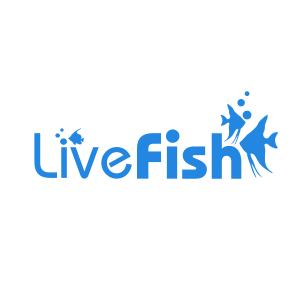Zoster Butterflyfish - Medium
The Zoster Butterflyfish is peaceful, easy to feed and care for. Its distinctive color and relaxed temperament make it ideal for beginner aquarists.
Zoster Butterflyfish
The Zoster Butterflyfish is black in color with a white band and tail. The white band runs vertically down the middle of its body to the caudal fin which is also white. At the top of the band the middle of the dorsal fin is yellow, and the front and rear parts black.
Butterflyfish form monogamous mated pairs, which are life partners. It isn't easy to breed them in captivity, if they do manage to spawn, raising fry can be problematic. Females are open water spawners, but these eggs are popular food for planktivores. If attempting to breed in captivity it is best to keep the mated pair separate from the rest of the tank.
Zoster Butterflyfish are widely distributed across the Indian Ocean. From the African East coast, Sri Lanka, and Mauritius to Indonesia. They are found around the edges of outer reefs on slopes, near open water for feeding on plankton.
Tank Recommendations for your Zoster Butterflyfish
A suitable tank should be at least 125 gallons (473 liters) capacity.
Zoster Butterflyfish can inhabit reef or fish-only aquariums. If they are placed in a reef tank they need to be fed properly or they will nibble soft corals. A tank should have plenty of live rock, for shelter and grazing opportunities. There should also be a large amount of swimming space.
High water quality should be maintained with a good filter. Butterflyfish are used to strong ocean currents, so a tank should try to replicate this.
Suitable Tank Buddies
Zoster Butterflyfish have a peaceful temperament. They aren't threatening to other fish but may get harassed by larger predatory fish.
Usually Compatible
Suitable tank buddies include Angelfish, Gobies, Parrotfish, Damsels, Clownfish, and Tangs.
Sometime Compatible
Zoster Butterflyfish can co-habit in small groups. This works best if they are introduced simultaneously. They should however be the only species of Butterflyfish in the aquarium. If Zoster Butterflyfish feed regularly, they shouldn't threaten soft corals or small inverts.
Rarely Compatible
Tank members should be of a similar size and temperament to Zoster Butterflyfish. Avoid larger, aggressive feeders and predators which may intimidate them. Eels, Triggers, Groupers, Sharks, and Rays are all unsuitable. Seahorse and Pipefish are too delicate to share a tank.
Feeding your Zoster Butterflyfish
Zoster Butterflyfish are omnivores. They can consume frozen and freeze-dried foods which contain algae. Meaty foods such as vitamin-enriched brine and mysis shrimp can also be part of its diet. Feeding should occur twice a day.
| Scientific Name | Hemitaurichthys zoster |
|---|---|
| Care Level | Easy |
| Common Names | Banded Butterflyfish, Black Zoster Butterflyfish, Zoster Butterflyfish, Belted Butterflyfish, Brown-and-White Butterflyfish, Brushtooth Butterflyfish, Girdled Butterflyfish, Pyramid Butterflyfish. |
| Diet | Omnivore |
| Fish Family | Chaetodontidae |
| Lifespan (years) | 8 |
| Max. Length (cm) | 18 |
| Min. Tank Volume (l) | 473 |
| Origin | Indo-Pacific, - Indian Ocean - African East coast, Sri Lanka, Mauritius, Indonesia Sociability: Peaceful |
| Reef Safe | With Caution |
| Sociability | Peaceful |
| Venomous | No |
| Water Conditions | 22.2-27.7° C (72-78° F), dKH 8-12, pH 8.1-8.4, sg 1.020-1.025 |



